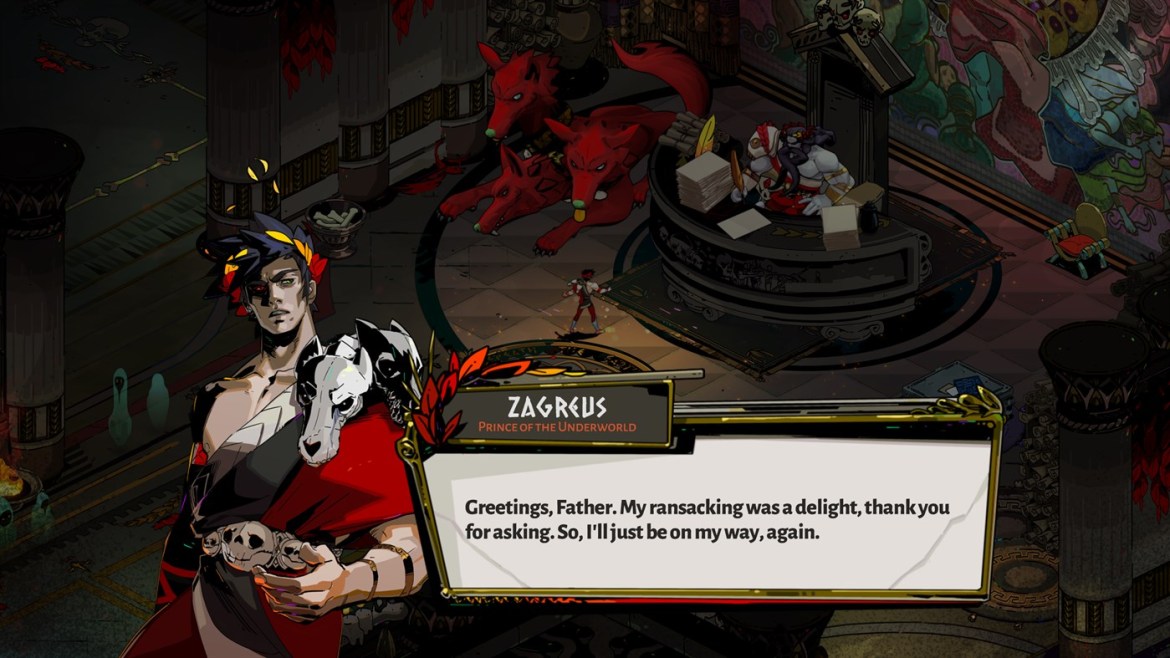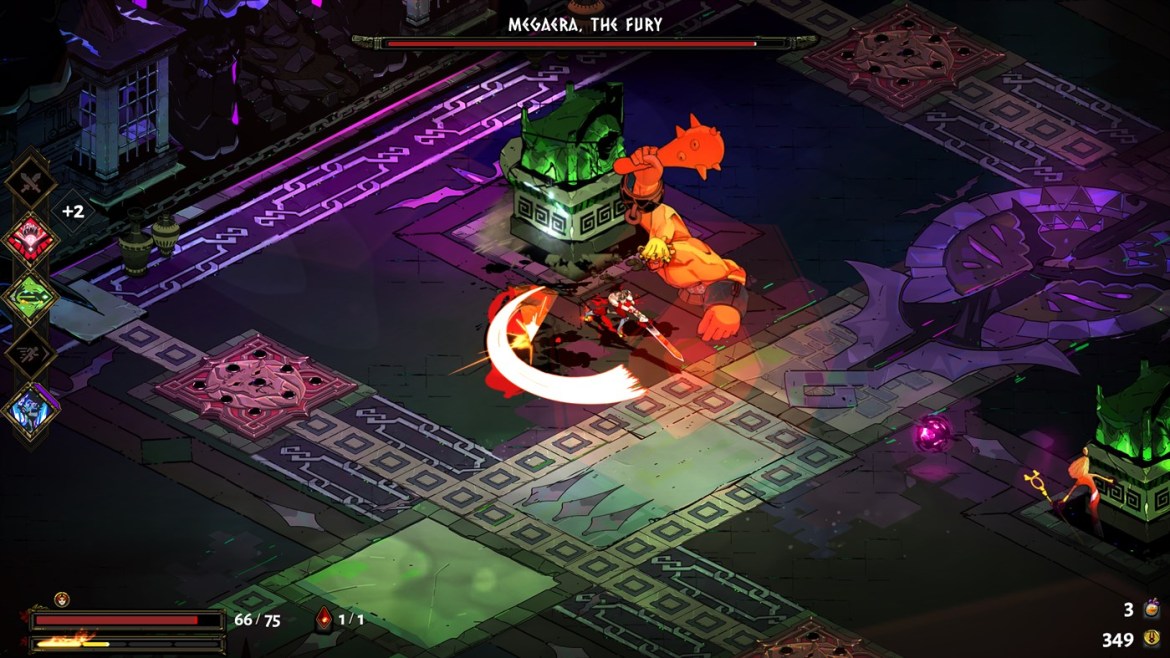Hades is developer Supergiant’s refreshing take on the roguelike genre. Nearly three years after its arrival in Early Access on PC and almost a year after its official release, the game is now available on both Xbox and PlayStation platforms. Much like the developer’s other games, Hades is played in an isometric perspective.
Based on Greek mythology, the game puts you in the role of Zagreus, son of Hades, who’s hellbent on escaping his father’s realm. Throughout his journey, he will have the assistance of the gods of Olympus, who usually appear towards the end of each arena and offer a selection of special boons to pick from. Hades, on the other hand, unhappy with Zagreus’ efforts, send an army of increasingly powerful minions to stop him from ascending the underworld. Much like in other roguelikes, Zagreus doesn’t have the strength to overcome such challenges early on. As such, you’ll find yourself failing and trying again and again, retaining artifacts that allow you to acquire permanent upgrades along the way to assist you in your future attempts.
The thing that truly sets Hades apart from other roguelikes is its contextualization of the repetition associated with the genre. You’re constantly getting killed and re-awakening at the very beginning, and all NPCs you encounter, including bosses, are aware of this. In addition, they also acknowledge the progress you made in your previous run. As he makes his way through each battle across a series of procedurally generated chambers in each run, the story will continue to unfold through your failings, as Zagreus will get to learn more about himself and the mysteries of the underworld. The game owns its repetition in a way that keeps things from getting stale and monotonous, at least until you complete a run.
It’s hard not to appreciate the work that went into the dialogue and voiceovers for the aforementioned NPCs, and it’s a joy to learn about or rediscover these ancient figures. The discussions are cynical, yet they’re bound to bring a grin to the faces of those familiar with Greek mythology. Conversing with NPCs isn’t just for motivational speaking, however. You stand to benefit from them by offering them gifts from time to time and build loyalty, somewhat like in the Persona games.
The combat is fast-paced and addictive, thanks in part to responsive controls and breadth of power-ups, weapons, and upgrades. Every hit packs a powerful punch, and you feel the intensity during moment-to-moment gameplay, as you dodge through enemy attacks and take them out in a matter of seconds. While it doesn’t have the depth of a character action game, it’s undoubtedly a marked improvement over the combat in Supergiant’s past games. You perform a regular, powerful, and special attack, as well as a quick dodge maneuver. It’s a fairly simple move set, but this simplicity works well with the blazing-fast nature of encounters.
When things get chaotic, it often exhibits similarities to a bullet hell shooter, especially when you’re in the midst of enemy projectiles and also when you use a certain weapon you unlock later on. Your choice of weapon, as well as the RNG-based power-ups and upgrades you receive, can significantly alter your play style. Boss fights are equally engaging, and they manage to retain a degree of freshness despite occurring over and over again over the course of runs. Bosses tend to surprise you with new tricks and tactics as you get stronger and more capable of dealing with their tougher variants.
After your first successful run, you’re encouraged to experiment with different builds, and it helps in keeping the endgame fresh for a while. However, despite the game’s best efforts, the repetition does eventually catch up to you, and things start to feel stale and monotonous. It’s difficult to shake the feeling that the game simply wants you to grind your way through every challenge it throws your way rather than allowing you to learn from your mistakes. Each successive run is trivialized as the means to earn and spend artifacts to make you stronger and, in turn, skew the odds in your favor. It’s a stark contrast to something like Returnal, another roguelike where learning from your failings is an integral part of the experience.
The PS5 version of Hades is a bit of a mixed bag. On one hand, the game’s beautiful art truly shines at 4K, and load times are extremely short to the point where they no longer matter. On the other hand, the limited support for DualSense features feels like a wasted opportunity. Adaptive triggers are used sparingly here and there, such as when petting Cerberus or when calling aid. While rumble support is present, the lack of haptic feedback support is disappointing, as it had the potential to further elevate the experience. Similarly, HDR, 3D audio, and 120Hz support would’ve made for nice additions to this year’s late port.
All in all, Hades is an innovative and refreshing take on the roguelike genre. The harmony between narrative and roguelike elements is unlike anything seen before. The moment-to-moment gameplay is fast, frenetic, and a lot of fun. The only criticism that can be thrown at the game is its relatively weak endgame. Regardless, it’s a must-play for every fan of the genre and also a great place to start for those who are new to roguelikes.
Hades Game Information
- Price: $24.99
- Publisher: Supergiant Games
- Developer: Supergiant Games
- Platform: PS5 (Reviewed)
- Disclaimer: A review code was given by the publisher




